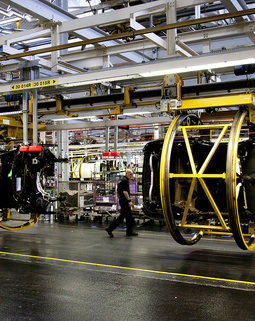Each year, an estimated sixty thousand people disappear from air pollution in Africa. These deaths command the continent an estimated $ 215 billion in 2013. Transport is significant in Nigeria as it keeps the economy afloat. However, current modes of transportation are the rapidly growing sources of carbon emissions in the world.
An estimated seventy-two million vehicles are utilized in Africa, many of which use fossil fuels — petroleum and natural gas — that pollute the air and harm people and the environment. Electric vehicles are anticipated to reduce water pollution - a major factor in climate change. The main explanation that countries are striving to acquire electric vehicles is to enhance the air quality that citizens breathe and reduce climate differences.
In this issue of The Next Wave, we inquire whether Africa is prepared to buy electric cars and why they should spend awareness of it.
Why the change?
Last year, Tesla, a manufacturer of electric vehicles owned by Elon Musk, introduced nearly a million cars to consumers, marking a new period of automotive development. Although electric cars are a small part of the international car market, data from the International Energy Agency indicates that about nine% of new cars sold last year were electrically operated; and the statistics company IHS Markit is projecting that, by 2050, 8 out of 10 cars sold will be electrically operated.
Electric cars will not move forward until they become affordable as their fuel partners, so to continue their acquisition, governments around the world are promoting their purchases to continue their acquisition.
The African initiative for this inducement is a Nigerian government program to provide Nigerians with loans to buy new electric vehicles.
Africa, are you ready?
In many places of Africa, electricity is still an amenity, as more than 640 million Africans do not have access to it. Moreover, although electric cars will help reduce gas and save costs, electricity is not inexpensive in Africa.
The government of Nigeria has high ambitions for electric vehicles: in 2019, the Senate approved a bill to cut off petrol vehicles and increase the number of electric vehicles by 2035. However, he was forced to relinquish the bill because Nigeria is an oil-producing country.
Even after its discovery, Africa may find it hard to achieve the full natural advantages of electric vehicles due to the boost in gas-fired power grids. Experts say that even if you get everyone to use electric cars while your power grid has no carbon, the full profit in the area will decrease. Thus, African power lines must be clean — powered by wind, natural gas, and solar power — before the full advantages of electric vehicles can be realized. And there is another challenge.





